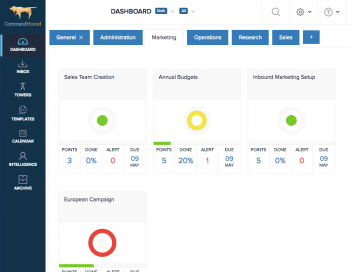Every Human Resources professional has faced the issue of developing and sticking to a hiring methodology. It seems like you have to sift through more and more resumes and potential candidates than ever to make sure that all components of your HR recruiting process are running on schedule.
Insights: Human Resources
The gig economy is here to stay. Intuit estimates that by 2020, as many as 40 percent of Americans will be contingent, or “gig” workers. Gig workers can be freelancers, independent contractors, or any other outsourced employees who are hired on a per-project basis.
Some of these contingent workers choose to work outside of a payroll system either as full-time freelancers or as part-time workers who supplement their income by picking up gigs. Others take contingent jobs out of necessity even though they would prefer full-time employee status.
It seems like nowadays everybody is talking about accountability in the workplace and how critical it is to make sure things get done. There are so many conversations about how hard it is to implement accountability and how hard it is to change the culture of the business so that it becomes a permanent change.
Although CEOs often dictate company culture, and might sometimes even seem above the rules, recent research indicates that company structures are increasingly necessary to monitor upper-level executives and to hold them accountable for their behavior.
Putting practices and strategies in place to hold executives accountable to ethical requirements is necessary and can save corporations many headaches in the long run.
Today’s tight labor market has created an environment where employers are bending over backward to retain their top talent. Companies are looking at pay increases, benefits packages, training opportunities and other perks to keep their employees satisfied and engaged. But they often overlook the most simple and inexpensive way to improve engagement — an employee recognition program.
The June jobs report is out, and it shows that U.S. employers increased the pace of hiring, a sign of continued labor market growth.
U.S. companies didn’t need to see the statistics to know that, in today’s labor market, they must work harder than ever to retain their workers.
And since millennials will make up more than 75% of the workforce by 2030, finding a way to retain that generation of employees is a major concern.
So why write an article about giving your millennial employees negative feedback? Because believe it or not, they want it!
The annual performance review is an excruciating ritual that has been around for a really long time, but, in 2017, it’s just not cool anymore.
It is a 20th century model that just doesn’t work for the 21st century. Managers see them as time consuming and not always reflecting employees’ real contributions. Employees, especially millennials, can find them demeaning and unfair.
But how can we provide the feedback that is essential to an employee’s growth without a review? And how can management gather and organize information on employee performance to use in human resources decisions?
It has become the norm for businesses to incorporate a virtual workforce into their operations.
Whether a company has geographically dispersed offices, hires employees or freelancers in different cities or countries, or just offers local employees the flexibility to work from home, more and more of us are having to manage remote teams.
Results of a Gallup survey published earlier this year showed that 43 percent of employed Americans spent at least some time working remotely in 2016.
The worldwide cyberattacks in the news lately have worried businesses and individuals alike.
The ransomware attacks Petya and WannaCry have affected commercial businesses, governmental entities, and individuals by the thousands. But while the media focuses on these external attacks, internal network security threats remain one of the most common problems in security management.
The latest data out from the Bureau of Labor Statistics shows that the unemployment rate is at it’s lowest point since the recession and that the labor market is verging on full capacity.
While this is good news for the US economy, it means that you, as an employer, cannot afford to lose even one valuable employee. Turnover is expensive.







